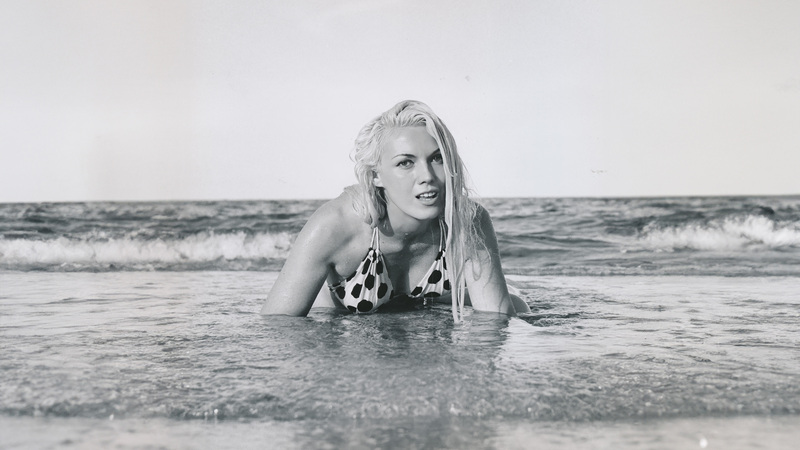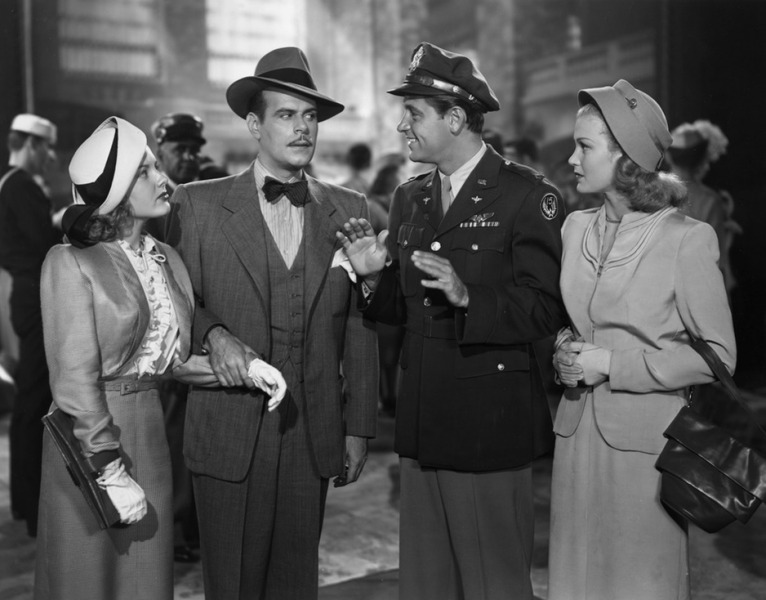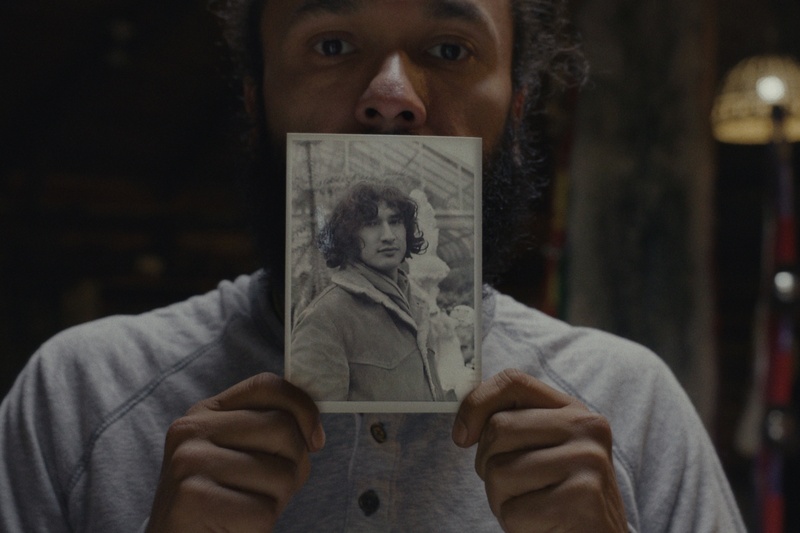
Glamour, Grit, and a Camera That Wouldn’t Blink
MOVIE REVIEW
Naked Ambition
–
Genre: Documentary
Year Released: 2025
Runtime: 1h 13m
Director(s): Dennis Scholl, Kareem Tabsch
Where to Watch: in select theaters beginning September 12, 2025
RAVING REVIEW: This film does something unique, shining a spotlight on Bunny Yeager—model, photographer, entrepreneur—whose fingerprints are all over mid-century American pop culture even if her name isn’t. Rather than building a biography, the documentary assembles a persuasive, steadily layered case: Yeager’s images didn’t just decorate the era; they helped to create it. The work popularized the bikini and elevated the image of Bettie Page. It molded the 1950s pin-up into something both sharper, nudging a country inching toward social change to confront who controls the image of women and why.
The film adopts an elegant, classical structure—utilizing talking-head interviews, archival footage, and narration—but the directors understand the distinction between presenting a résumé and telling a story. They observe Bunny’s own transformation from in front of the camera to behind it, an arc that mirrors the documentary’s larger concern: authorship. Whose eye is this? Who gets to say what beauty is for? The interviews are well-chosen and complementary—Dita Von Teese speaks to style and agency, Bruce Weber to craft and lineage, and Larry King to the breadth of Yeager’s influence.
The directors carve the runtime into decisive chapters: the post-war context, the Page collaborations, the business savvy that powered Yeager’s studio, and the afterlives of those photographs as culture shifted under them. The film lingers on the idea that Yeager’s images were both product and provocation: bright, beachy, playful—and, crucially, under the subject’s control. That combination, in a conservative 1950s America, reads as radical. The film’s best moments are simple: let the pictures speak for themselves. You can feel how Yeager’s high-key style and collaborative approach reframed “men’s magazine” aesthetics into something less predatory and more conspiratorial—images that feel like they belong to the women inside them.
The throughline is how the movie ties Yeager’s craft to technological and cultural aspects: the wardrobe she improvised, the sets she devised, and the business decisions that allowed her to maintain ownership. It’s here that the film makes a subtler argument: innovation isn’t just aesthetic; it’s logistical. That she and Bettie Page could create work that looks effortless—summer light and unbothered smiles—was the point. The labor remains invisible until you decide to look closer. The directors keep that line taught without turning the movie into a lecture.
Because Yeager frequently shot women as co-conspirators rather than subjects, the portraits read now as surprisingly contemporary—women looking back at the camera, not merely posed for it. The film pairs those images with a light but purposeful historical context—Playboy’s rise, moral panics, the tangle between commerce and liberation—so the viewer can see both how Yeager’s aesthetics slid into the mainstream and how the mainstream then sidelined her name. The irony that the sexual revolution, which broadened market demand for the kinds of images she perfected, also made her authorship easier to bury is one of the film’s most incisive observations.
As a portrait, the film is admiring but not uncritical. It nods to differences within Yeager’s own circle—how family members, collaborators, and observers read the same images with different lenses—and it trusts viewers to sit with those tensions. The filmmakers also resist turning the story into a simple parable of pioneering womanhood. Yes, it’s a reclamation; yes, it’s overdue. But its argument is more precise: Yeager’s methods—collaboration, control, pleasure without apology—map onto today’s debates about image-making and agency with startling precision. That relevance is what elevates the film beyond biography.
If the goal is to put Bunny Yeager’s name where it belongs—next to images everyone already knows—the film succeeds. It’s accessible enough for casual audiences and informative enough for those who are interested in the mechanics of photography and the politics of perception. More importantly, it recasts a well-worn cultural era through the eyes of a woman who didn’t just pose for the lens; she pointed it, owned it, and understood exactly what it could do.
Please visit https://linktr.ee/overlyhonestr for more reviews.
You can follow me on Letterboxd, Instagram, Twitter, and YouTube. My social media accounts can also be found on most platforms by searching for 'Overly Honest Reviews'.
I’m always happy to hear from my readers; please don't hesitate to say hello or send me any questions about movies.
[photo courtesy of SCHOLL CREATIVE, TROJAN HORSE, MUSIC BOX FILMS]
DISCLAIMER:
At Overly Honest Movie Reviews, we value honesty and transparency. Occasionally, we receive complimentary items for review, including DVDs, Blu-rays, CDs, Vinyl Records, Books, and more. We assure you that these arrangements do not influence our reviews, as we are committed to providing unbiased and sincere evaluations. We aim to help you make informed entertainment choices regardless of our relationship with distributors or producers.
Amazon Affiliate Links:
Additionally, this site contains Amazon affiliate links. If you purchase through these links, we may receive a commission. This affiliate arrangement does not affect our commitment to honest reviews and helps support our site. We appreciate your trust and support in navigating these links.



Average Rating